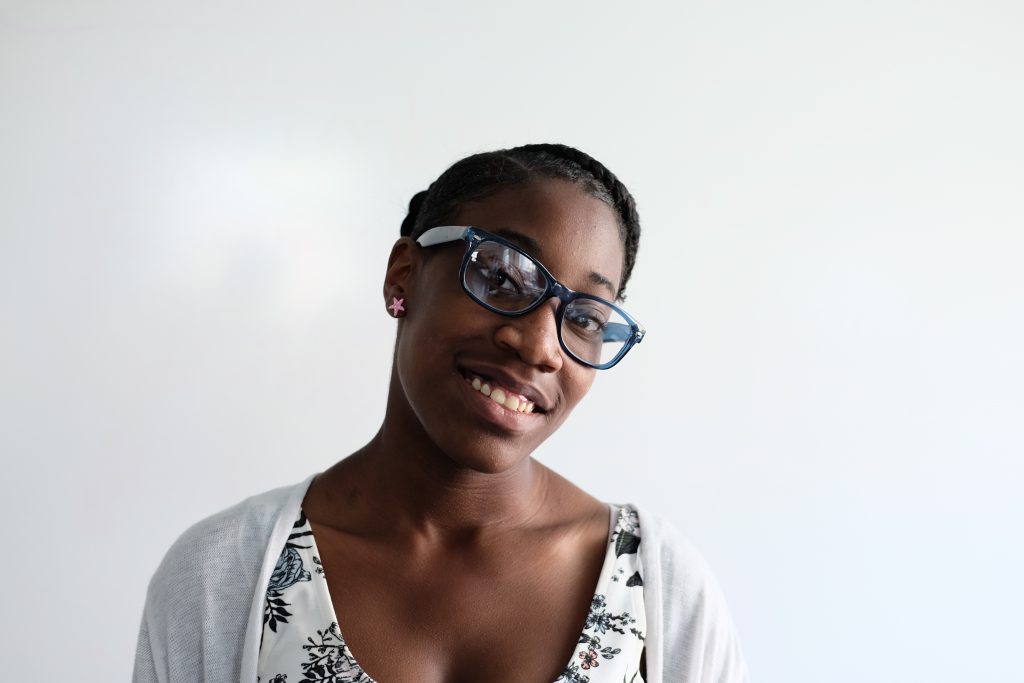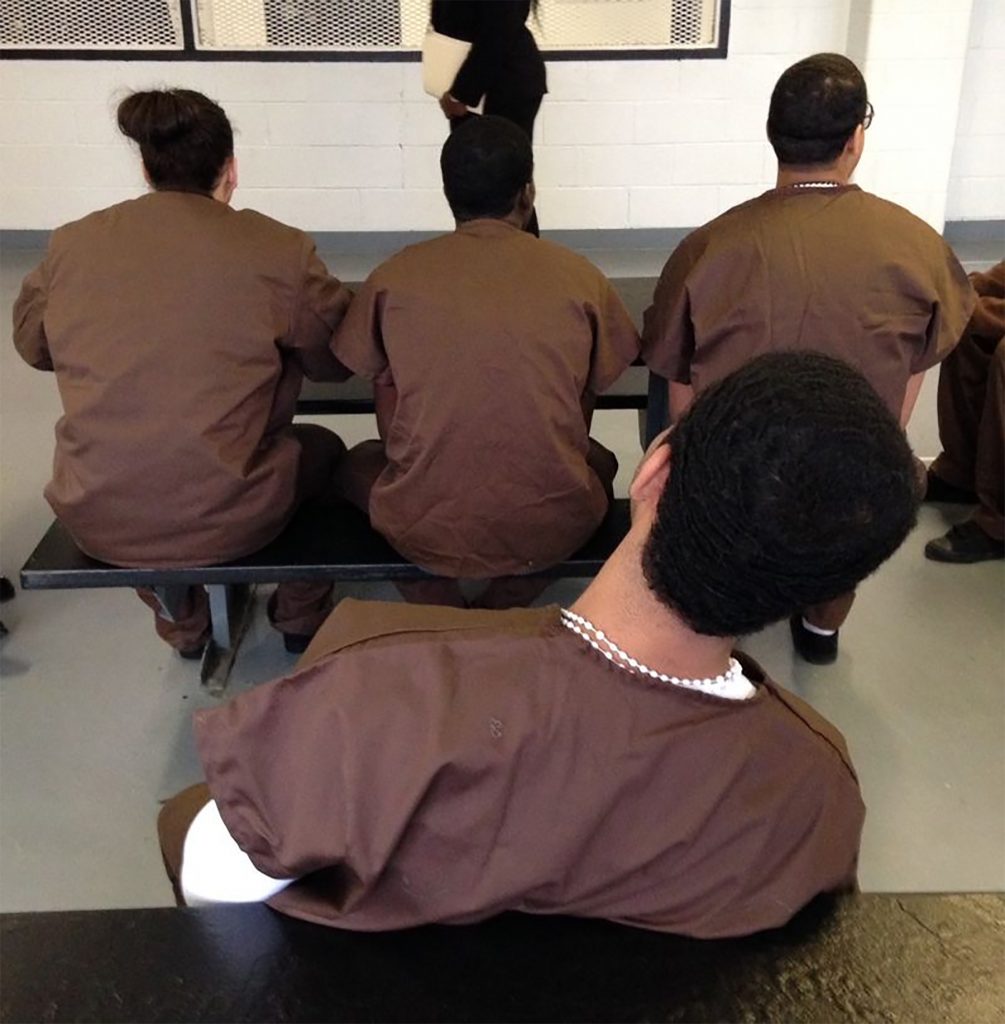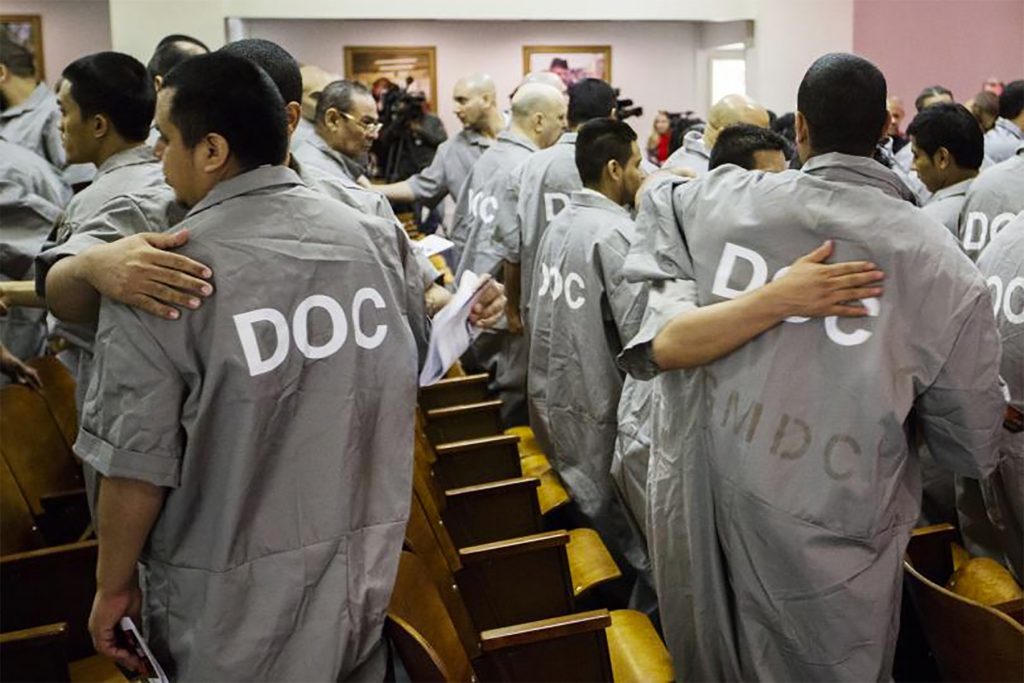By: Brianna Glover

A Rikers Island corrections officer starts his or her day off at an assigned post. The officer’s first duty is to count inmates to make sure no one is missing, that there is no contraband in the area, and that no one is hurt. Once the officer is done with that, he moves the inmates to showers and phone area, where they can call friends and family. This is how an officer starts every day. He doesn’t know what the rest of the day will hold. Sometimes his work is rewarding, but it can also be challenging, like when fights break out.
My big brother, Jonathan Knox, is a correction officer at Rikers Island, where he has worked for three years. This year, Jonathan began working exclusively with the adolescents who are held at Rikers. Everyday, there are around 400 juvenile inmates, aged 16-18, housed at Rikers Island.
In 2014, the Department of Justice reported that adolescents at Rikers were subject to “excessive and unnecessary use of force” by corrections officers. In 2015, the suicide of Kalief Browder, a 22-year old who spent three years on Rikers Island for allegedly stealing a backpack, brought national attention to abuses at the facility. In response to some of the facility’s problems, the City of New York recently announced their intention to close down the island’s juvenile facilities, and to move adolescents off Rikers Island by 2018.
Reading about Kalief Browder — about how he was arrested at the age of 16, never had a trial and was put in solitary confinement, then died and never got to tell his story — made me realize that many people my age are scared to speak the real truth about what’s going on. Rikers is a violent place. According data found in the New York City Government’s 2016 quarterly reports, around 2600 adolescent fight infractions were written by C.O.s in 2016.
I interviewed my brother about his job. My brother has another point of view about the situation at Rikers. Interviewing him about his work, and hearing stories from Rikers, made me feel choked up. But I felt it was important to ask these questions.
Brianna Glover: What is your job?
Jonathan Knox: I deal with the care, custody, and control of inmates, which are detained by New York City as they go to court to waiting for their day in court.
BG: So how do you start your day?
JK: Well, first thing is roll call. The tour commander and captain would take attendance and give out the daily assignments/post. They would also give us information on change in policy band what they expect from us for the day. If I’m assigned to work in a housing area I would go to that area, count the number of inmates in the area and then conduct a security inspection. I must make sure everything is secure and no contraband is in the area. I would then perform the lock out, pat frisking all inmates as they exit their cells and direct them to the dayroom, shower area or phones.
BG: What is a contraband?
JK: Any item the inmate is not allowed to have.
BG: Do the inmates make weapons while they are locked up?
JK: They do make weapons out of items they find and they shapen them, but contraband includes items they should not have, such as sneakers and types of pens. All items that are not DOC authorized.
BG: Do they fight you?
JK: That has happened. I must respect when there is an issue, before becoming physical. We first attempt to de-escalate before we use force.
BG: Do the inmates talk [to you] when there’s an issue?
JK: Sometimes, it all depends on the type of rapport you have on the inmate. If they “trust you” they will be more prone to bring the issue to you. This helps avoid simple incidents and issues from turning into larger issues.
BG: What’s the difference between a small issue and a big issue?
JK: Sometimes something as small as going to the clinic can become a large issue. If an inmate says that they are not feeling well, I have them sign up for sick call, or call the clinic so that the inmate is seen. This is a small issue. If the inmate has been waiting for days to go to the clinic, it’s steamrolled to a larger issue.
BG: Have any inmates died or gotten really hurt?
JK: Yes, it has happened. Inmate on inmate fights can end up in basic bumps and bruises, to slashing or broken bones.
BG: What is it like to work with juveniles? Are they mentally broken down when you see them?
JK: It’s hard to answer that. That’s for the mental health staff to determine. What I can say is that their issues doesn’t start when they get in jail. It happens when they are free.
BG: Do they like to fight?
JK: I don’t think so. They fight out of necessity. Rival gangs, fear, or else they want someone out of the area. Who knows.
BG: They have gangs?
JK: I would say at least half the adolescents incarcerated are gang members. Many [got involved with gangs] in the streets, and some convert when they come to rikers.
BG: Do you like your job?
JK: Now I do. Especially since I work with the juveniles. I see that I have an opportunity to change their perception on many aspects of life. Some are looking at a lot of time to serve, while others are on the light end. Just exposing these young men to different trains of thought is a new opportunity for them.
BG: Do they go outside or do they just stay inside?
JK: The go outside for recreation. They get a 1 hour a day.
BG: Do they like to be outside?
JK: Yes!!
BG: What is the youngest age you’ve worked with?
JK: 16 years old.
BG: That’s really young. What is the longest you can be sentenced for?
JK: LIFE!!!
BG: Do you ever feel bad for them?
JK: For a select few. It’s only human.
BG: What do you mean it’s only human?
JK: Empathy. When you see someone locked up for the first time, you can’t help but feel bad. You must learn to separate feelings and work.
BG: Are they put in any form of isolation?
JK: Not for the juveniles, but for the other inmates
BG: Do you think juveniles belong at Rikers?
JK: Yes, why shouldn’t they be there? I have yet to hear a reason as to why they shouldn’t be on the Island. Between 13-15, they are in other facilities, and act worse.

My interview with my brother further convinced me that juveniles are not ready to face the danger and fear of what they are going to face when they get there. Sometimes I wonder what the juveniles are thinking. Perhaps they are thinking:
“What am I doing in here and why am I in this situation. What did I do wrong?”
I wish I could tell them, ”You’re not alone. There’s other juveniles that feel like that and they also don’t know what to do.” Teenagers are made to be in juvenile detention centers not at Rikers Island with adults who are criminals.
There’s a difference between being in a juvenile detention center and being a prisoner at Rikers Island. Even though juveniles committed a crime, I don’t think that they should be sentenced or forcibly sent to go to Rikers Island. I believe that they should be at a juvenile detention center because they will at least be safe and no one will hurt them. Juveniles should not be in isolation either because — as we learned from the Kalief Browder story– being by yourself in a dark room with no one to talk to will mess with your head.
I chose this topic because I believe this topic actually chose me. I want to be the voice of the juveniles in this story and to be honest, I want to let the juveniles know that they are not alone and that one day, their voices will finally be heard. I seriously don’t believe that juveniles should be sent to Rikers, I believe that they should be put in a detention center instead of being scared that they are going to one day be beaten badly to death and never got a real chance at life. I believe the only time Kalief Browder had a chance was when he was about to end his life, two years after he was arrested.
I believe everyone has a second chance. Do you believe that the juveniles have a second chance or do you think that they should be forced into Rikers and never see the light of day? Just ask yourself that question, and put yourself in the juveniles shoes and see how they feel when their voice is not heard, how they feel when their feeling are not expressed, and finally how they feel when they’re all alone and there’s no one to take care of them. They are all alone. No one should be in that situation.
